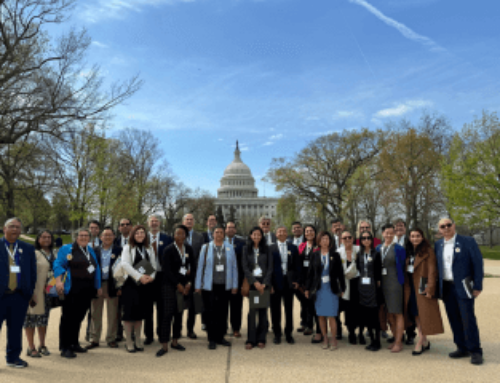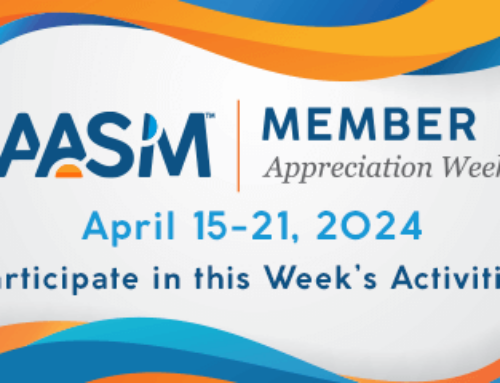DARIEN, Ill. – Following the longest federal government shutdown in U.S. history, and with the possibility of another shutdown looming, the American Academy of Sleep Medicine (AASM) is warning that such shutdowns exacerbate the safety risks posed by insufficient sleep and fatigue among air traffic controllers and Transportation Security Administration (TSA) officers.
“Even in typical circumstances, safety may be impacted due to fatigue-related errors by air traffic controllers and TSA officers,” said AASM President Dr. Douglas Kirsch. “Shutting down the government, which forces these essential federal employees to work without pay, exacerbates fatigue, increases risk of errors, and jeopardizes aviation safety.”
Workplace conditions that contribute to fatigue-related errors in both professions include insufficient staffing resulting in long work hours; 24-hour operations, which require extended, rotating or night shifts; and the requirement of sustained mental vigilance during monotonous tasks. Air traffic controllers also are known to work “rattlers,” a grueling, fatigue-inducing schedule that compresses five shifts in a four-day span.
These risks are magnified during government shutdowns, when some workers call in sick instead of working without pay, forcing more air traffic controllers and TSA officers to work overtime hours. Others choose to pick up additional work to generate income. This is particularly relevant for transportation security screeners, whose mean annual wage in 2017 was $40,960, according to the Bureau of Labor Statistics. The result is that these safety-sensitive personnel work longer hours and get less sleep, increasing the risk of fatigue-related mistakes such as the incident that occurred on Jan. 2, when a passenger’s gun was undetected by screeners at Hartsfield-Jackson Atlanta International Airport.
“Not every fatigue-related mistake will lead to an accident or safety incident, but elevated fatigue levels among TSA officers and air traffic controllers will lead to an increased number of mistakes,” said Erin Flynn-Evans, who has a doctorate in health and medical science with a concentration in circadian physiology and is the director of the NASA Fatigue Countermeasures Laboratory. “These mistakes create a layer of vulnerability in the air transportation system.”
Decades of sleep and circadian research demonstrate that excessive sleepiness is a safety hazard rather than an inconvenience that can be ignored. Chronic restriction of sleep to six hours or less per night produces cognitive performance deficits equivalent to up to two nights of total sleep deprivation. This impairment is made worse by the fact that many individuals are unable to recognize their own sleepiness, remaining unaware that their cognitive performance is plummeting.
Fatigue-related safety risks have long been recognized by the National Transportation Safety Board (NTSB), which included the goal of reducing fatigue-related accidents on its 2019-2020 Most Wanted List of transportation safety improvements. The NTSB also has issued specific recommendations to the Federal Aviation Administration (FAA) to address the problem of fatigue-related errors among air traffic controllers.
“Requiring air traffic controllers and TSA officers to remain on the job while sleep-deprived and unpaid during government shutdowns, and just hoping for the best, is simply not a viable solution,” said Dr. Indira Gurubhagavatula, director of Occupational Sleep Medicine at the University of Pennsylvania’s Division of Sleep Medicine and chair of the AASM Public Safety Committee. “We need to prevent this from happening again, rather than waiting to be caught in another tailspin.”
The AASM urges President Donald Trump and congressional leaders to reach a compromise to avoid another government shutdown and all of the safety risks associated with it. Federal regulators are encouraged to require longer-term, better fatigue-risk-management programs for safety-sensitive employees in all transportation industries. The AASM also recommends the development of policy changes that will ensure an adequate pipeline of new air traffic controller trainees.
###
For more information, or to speak with an AASM spokesperson, please contact Thomas Heffron, Senior Director of Communications and Advocacy, at theffron@aasm.org or 630-737-9700.
About the American Academy of Sleep Medicine
Established in 1975, the American Academy of Sleep Medicine (AASM) improves sleep health and promotes high quality, patient-centered care through advocacy, education, strategic research, and practice standards. The AASM has a combined membership of 10,000 accredited member sleep centers and individual members, including physicians, scientists and other health care professionals.









